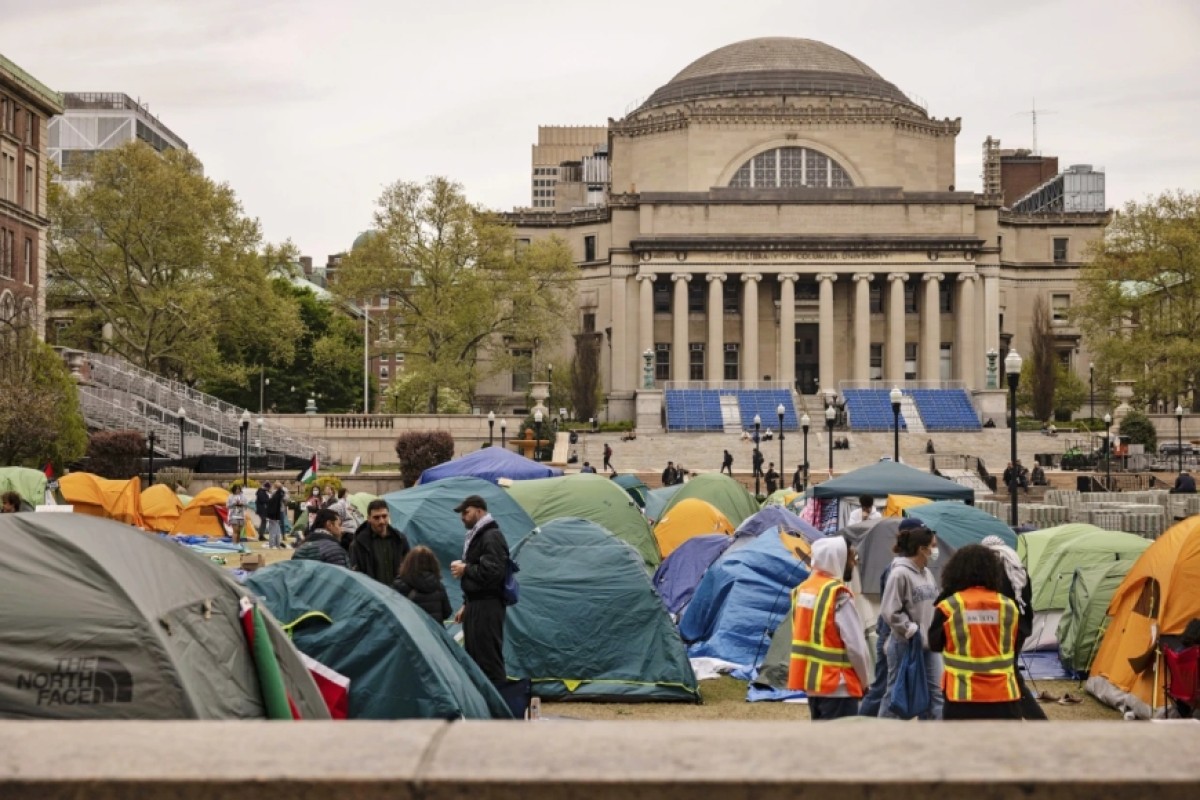 2851
2851
### Columbia University Stands Firm Against Divestment Amid Protests
### Columbia University Stands Firm Against Divestment Amid Protests
New York, April 29, 2024 – Columbia University's campus has become a focal point of heated debates and public protests as student demonstrators call for the institution to divest from Israel. Despite ongoing negotiations, Columbia University President Minouche Shafik announced on Monday that the university will maintain its current investment stance and will not divest from Israel.
The decision comes amid escalating tensions on campus, where a significant encampment has formed in support of Gaza, following the deadly conflict that claimed over 34,000 lives in the region. This encampment, first of its kind among elite institutions, began as a protest against Columbia's investments in weapons manufacturing and its financial ties to Israel.
President Shafik has expressed concern over the impact of the protests, highlighting the "unwelcoming environment" created for Jewish students and faculty, and the disruptive nature of the demonstrations, especially with the upcoming commencement ceremonies.
Despite the failure to reach an agreement on divestment, Columbia has proposed several concessions in an attempt to resolve the standoff. The university has offered to expedite the review of new student proposals concerning socially responsible investments and to increase transparency regarding its investment holdings.
Furthermore, President Shafik revealed that Columbia is considering initiatives to support health and education in Gaza, including aid for early childhood development and displaced scholars. These efforts aim to address some of the concerns raised by the protesters without divesting from Israel.
The university is also engaging with a broader group within the community to explore alternative solutions to end the crisis swiftly. President Shafik urged the protesters to disperse voluntarily and reassured that the university would keep the community updated on any new developments.
As the protest enters its third week, the university remains a site of intense public and academic scrutiny, reflecting broader national debates over university investments and their ethical implications.
 2851
2851
Comment
Post a comment for this article